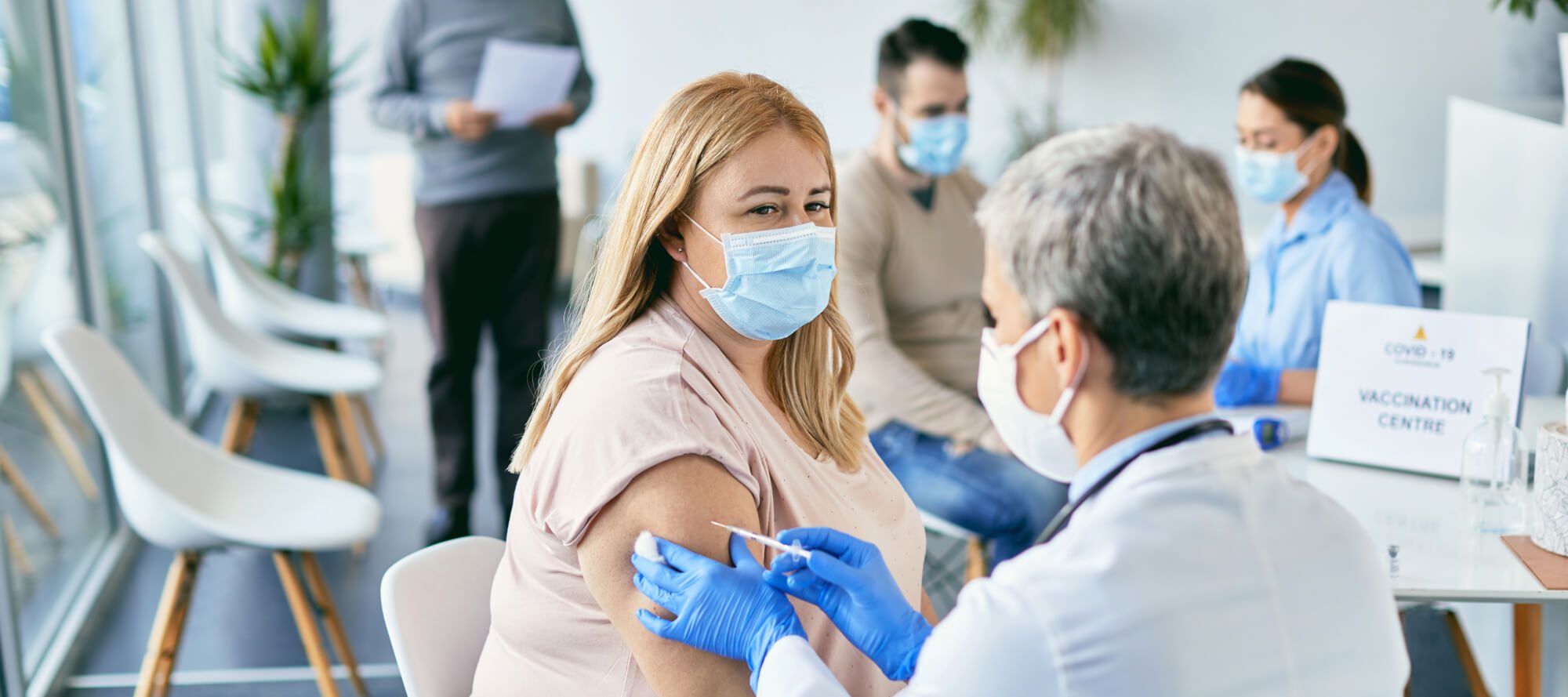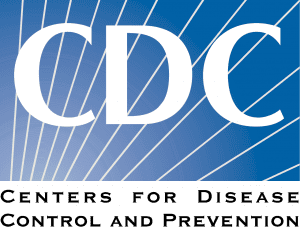- Repeated COVID-19 mRNA-based Vaccination Contributes to SARS-CoV-2 Neutralizing Antibody Responses in the Mucosa
Authors evaluated mucosal neutralizing antibody responses in a cohort of 183 individuals. Participants were sampled at several time points after primary adenovirus vector–based or mRNA-based COVID-19 vaccination and after mRNA-based booster vaccinations. They report that repeated vaccination with mRNA boosters promoted severe acute respiratory syndrome coronavirus 2 (SARS-CoV-2) neutralizing antibodies in nasal secretions. Nasal and serum neutralizing antibody titers of both IgG and IgA isotypes correlated to one another. They then investigated the source of these mucosal antibodies in a mouse model wherein mice received repeated mRNA vaccines for SARS-CoV-2. These experiments indicated that neutralizing antibody–producing cells reside in the spleen and bone marrow, whereas no proof of tissue homing to the respiratory mucosa was observed, despite the detection of mucosal antibodies. Serum transfer experiments confirmed that circulating antibodies were able to migrate to the respiratory mucosa. Collectively, these results demonstrate that, especially upon repeated vaccination, the currently used COVID-19 mRNA vaccines can elicit mucosal neutralizing antibodies and that vaccination might also stimulate mucosal immunity induced by previous SARS-CoV-2 infection. - SARS-CoV-2 XBB.1.5 mRNA Booster Vaccination Elicits Limited Mucosal Immunity
Here the authors point out that, yes, current COVID-19 vaccines provide robust protection against severe disease but minimal protection against acquisition of infection. Intramuscularly administered COVID-19 vaccines induce robust serum neutralizing antibodies (NAbs), but their ability to boost mucosal immune responses remains to be determined. In this study, the authors show that the XBB.1.5 messenger RNA (mRNA) boosters result in increased serum neutralization to multiple severe acute respiratory syndrome coronavirus 2 (SARS-CoV-2) variants in humans, including the dominant circulating variant JN.1. In contrast, another study in this same edition of the journal, found that the XBB.1.5 mRNA booster did not augment mucosal NAbs or mucosal IgA responses, although acute SARS-CoV-2 XBB infection substantially increased mucosal antibody responses. Their data suggest a separation between the peripheral and mucosal immune systems in humans. Related commentary, From Blood to Mucosa, suggests that differences in the cohorts, methodology, and number or relative timing of COVID-19 vaccinations or infections could be why we are seeing different results. - Risk for Facial Palsy after COVID-19 Vaccination, South Korea, 2021–2022
Investigators conducted a self-controlled case series study to investigate the association between COVID-19 vaccination and facial palsy (FP) in South Korea. They used a large immunization registry linked with the national health information database. They included 44,564,345 patients >18 years of age who received >1 dose of COVID-19 vaccine (BNT162b2, mRNA-1273, ChAdOx1 nCoV-19, or Ad.26.COV2.S) and had an FP diagnosis and corticosteroid prescription within 240 days postvaccination. They compared FP incidence in a risk window (days 1–28) with a control window (the remainder of the 240-day observation period, excluding any risk windows). They found 5,211 patients experienced FP within the risk window and 10,531 experienced FP within the control window. FP risk increased within 28 days postvaccination, primarily after first and second doses and was observed for both mRNA and viral vaccines. Tthese findings contribute to the evidence of a positive association between FP and COVID-19 vaccination, aligning with other studies. They mention a study of patients in Israel vaccinated with BNT162b2 during December 20, 2020–April 30, 2021, another analysis in the United Kingdom, and one conducted in Hong Kong, China. Studies have suggested that COVID-19 infection could cause FP onset. In South Korea, the annual incidence of Bell’s palsy increased from 23.0 cases/100,000 persons in 2008 and reached 32.5 cases/100,000 persons during 2021–2022 so an increasing trend during the COVID-19 pandemic. A retrospective cohort study in South Korea indicated that COVID-19 infection is associated with a higher risk for Bell’s palsy for COVID-19 vaccine recipients (IRR 1.20 [95% CI 1.15–1.25]) but an even higher risk for nonrecipients (IRR 1.84 [95% CI1.59–2.12]) (p<0.001).
- Nirmatrelvir Plus Ritonavir Reduces COVID-19 Hospitalization and Prevents Long COVID in Adult Outpatients
This retrospective cohort study assessed the effect of nirmatrelvir–ritonavir in preventing severe disease progression and Long COVID symptoms after acute COVID-19 in non-hospitalized adults. Treatment was associated with a notable reduction in COVID-19-related hospitalizations (adjusted hazard ratio [HR] of 0.39; 95% CI, 0.18–0.85) by day 28 of symptom onset. Moreover, nirmatrelvir–ritonavir was associated with fewer Long COVID symptoms (adjusted HR of 0.42; 95% CI, 0.19–0.95). This suggests the significant effectiveness of nirmatrelvir–ritonavir against the Omicron variant, reducing both severe and long-term COVID-19 symptoms. - Time to Sustained Recovery Among Outpatients With COVID-19 Receiving Montelukast vs Placebo - The ACTIV-6 Randomized Clinical Trial
This randomized clinical trial (Accelerating COVID-19 Therapeutic Interventions and Vaccines [ACTIV]–6) was conducted from January 27 through June 23, 2023, during the circulation of Omicron subvariants. Participants aged 30 years or older with confirmed SARS-CoV-2 infection and two or more acute COVID-19 symptoms for less than seven days were included across 104 U.S. sites. Participants were randomized 1:1 to receive montelukast, 10 mg once daily, or matched placebo for 14 days. The primary outcome was time to sustained recovery (defined as ≥3 consecutive days without symptoms). Secondary outcomes included time to death; time to hospitalization or death; a composite of health care utilization events (hospitalization, urgent care clinic visit, emergency department visit, or death); COVID-19 clinical progression scale score; and difference in mean time unwell. A modified intention-to-treat approach was used for the analysis. Among 1,250 participants who were randomized and received the study drug or placebo, and differences in time to sustained recovery were not observed no differences in any of the other endpoints. Conclusion: In this trial of outpatients with mild to moderate COVID-19, treatment with montelukast did not reduce duration of COVID-19 symptoms. These findings do not support the use of montelukast for the treatment of mild to moderate COVID-19.
- Clinical and Functional Assessment of SARS-CoV-2 Sequelae among Young Marines – A Panel Study
Investigators used a cohort of U.S. Marines from a previous longitudinal, prospective observational study of acute SARS-CoV-2, most of whom were enrolled prior to infection. A panel study was established to assess for post-acute sequelae of COVID-19 (PASC), defined as symptoms at least four weeks after symptom onset or diagnosis. Symptoms were assessed through questionnaires and validated quality of health metrics. Periodic U.S. Marine Corps fitness testing metrics provided an additional standardized functional assessment and were compared to a pre-pandemic cohort. Globally dispersed Marine participants (n = 899) seen an average of 330 days following initial enrollment were predominately male (n = 825, 91.7%) with a median age of 18 years (interquartile range: 18–19). Among 798 SARS-CoV-2 infected participants, 197 (24.7%) developed PASC. The most prevalent symptoms were loss of taste and/or smell (n = 82; 41.6%), shortness of breath (n = 74; 37.6%), and cough (n = 45; 22.8%). Those with PASC had higher rates and severity of somatic (p < 0.0001), general depressive (p < 0.0001), and anxiety (p = 0.005) symptoms. Compared to a historic cohort of Marines, participants with PASC scored worse on their physical fitness assessments due to slower run times (p = 0.002). Those with PASC continued to have decreased physical performance one year after completing initial training.
Situation Dashboards

World Health Organization (WHO)
Novel Coronavirus (COVID-19) Situation from World Health Organization (WHO)

Johns Hopkins University (JHU)
Coronavirus COVID-19 Global Cases by the Center for Systems Science and Engineering (CSSE) at JHU

COVID-19 in US and Canada
1Point3Acres Real-Time Coronavirus (COVID-19) Updates in US and Canada with Credible Sources

Genomic Epidemiology COVID-19
Genomic Epidemiology of (COVID-19) Maintained by the Nextstrain team, enabled by data from GISAID.






